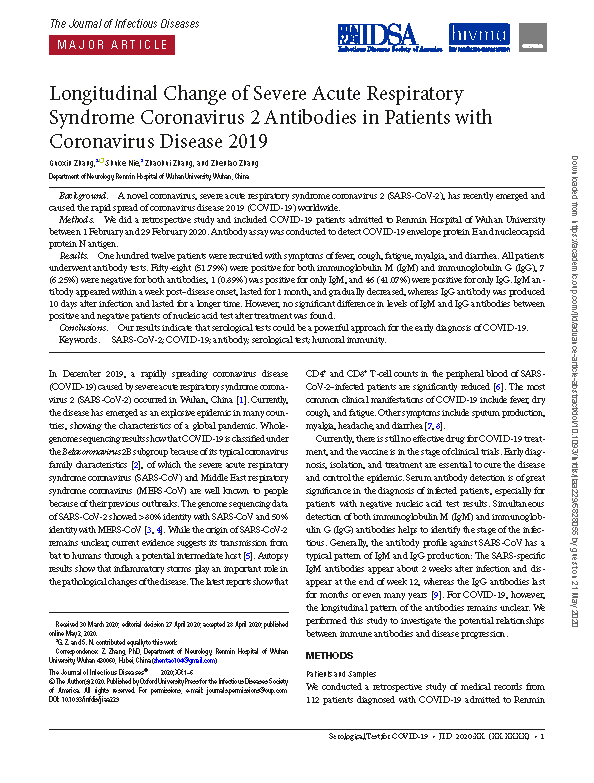May 22 Longitudinal Change of SARS-Cov2 Antibodies in Patients with COVID-19
Zhang G, Nie S, Zhang Z, Zhang Z
ABSTRACT
Background:
A new coronavirus, severe acute respiratory syndrome coronavirus 2 (SARS-CoV-2), has recently emerged and has caused the rapid spread of coronavirus disease 2019 (COVID-19) around the world.
Methods:
A retrospective study was done that included patients with COVID-19 admitted to Renmin Hospital of Wuhan University between February 1 and February 29, 2020. An antibody assay was performed to detect the E protein of the COVID-19 envelope and nucleocapsid (N) protein antigen
Results:
One hundred and twelve patients were recruited with symptoms of fever, cough, fatigue, myalgia, and diarrhea. All patients underwent antibody testing:
- Fifty-eight (51.79%) were positive for both immunoglobulin M (IgM) and immunoglobulin G (IgG).
- 7 (6.25%) were negative for both antibodies
- 1 (0.89%) was positive only for IgM
- 46 (41.07%) were positive for IgG only.
The IgM antibody appeared within a week after the onset of the disease, lasted 1 month, and gradually decreased, while the IgG antibody occurred 10 days after infection and lasted longer. However, there is no significant difference in IgM and IgG antibody levels between nucleic acid test positive and negative patients after treatment.
Conclusions:
Our results indicate that serological testing could be a powerful approach for early diagnosis of COVID-19.



